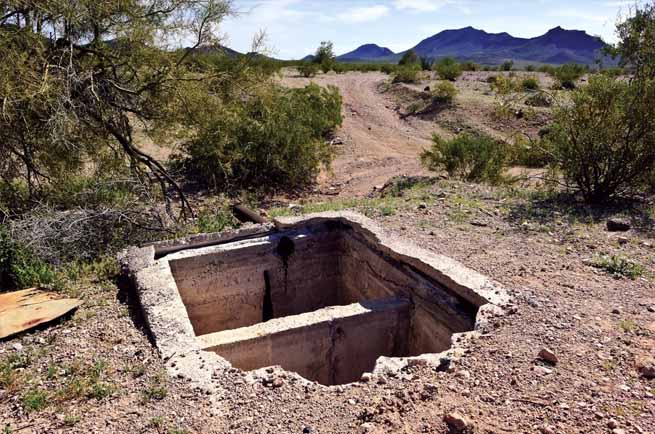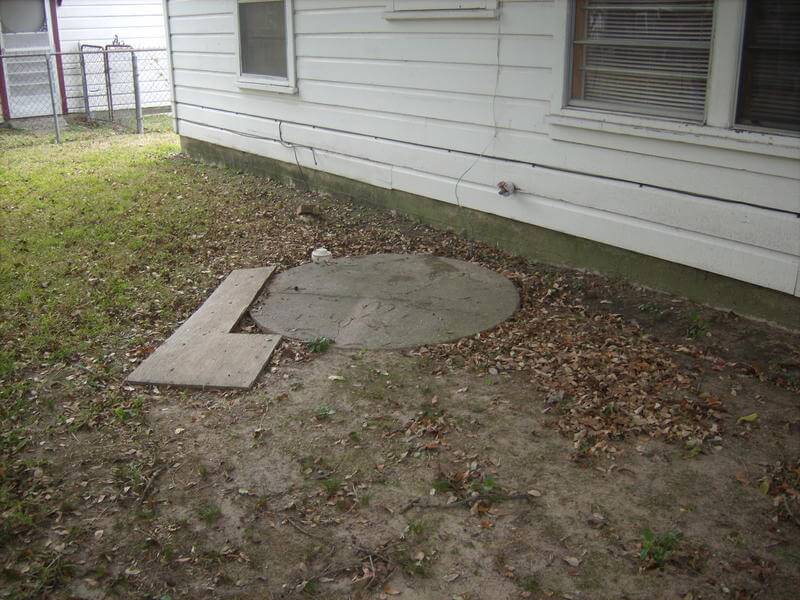Buying a house with an abandoned septic tank is as scary as it sounds and should raise concern because of its dangers or family safety threats, such as the probability of it sinking when someone is around, hurting, or killing them in the process.
In some circumstances, you may not even know that the property you just bought has an abandoned septic tank in the backyard because previous owners sealed it and covered the above-ground with soil, so all you see is green grass with no hint of anything underneath it.
To keep you informed, here are some crucial considerations when purchasing a house with an abandoned septic tank:
Is Buying A House With An Abandoned Septic Tank A Bad Idea?
Yes, because of the hazards associated with it. Accidents, toxins, and environmental contamination are the primary risks associated with abandoned septic tanks, not forgetting they can be breeding grounds for disease-causing organisms.
There have been reports of children being swallowed by the earth below while playing in the backyard after stepping on septic tanks that have weakened over the years, which parents didn’t know existed.
Such reports highlight the importance for home buyers, particularly those interested in properties built before 1970, to inspect for abandoned or concealed septic tanks and arrange for their removal.
If you discover your property has an abandoned septic tank, it could be because of two possible reasons that include:
- The previous property owner installed a new septic tank and ignored or forgot to decommission the old septic tank. Decommissioning an old septic tank means following the local health department’s regulations to render the tank inoperable. During the decommissioning, the owner may have the whole tank removed from the property or its contents drained and filled with concrete or gravel, then sealed.
- The previous owner linked their property to the municipal or local sewer system and failed to decommission the no-longer-in-use septic tank.
Read this: An Overview of the Best Way to Fill In an Old Septic Tank
Which Dangers Does an Abandoned Septic Tank Pose?
Abandoned septic tanks shouldn’t be ignored but treated like a ticking time bomb. Abandoned tanks that are yet to be decommissioned pose potential risks such as the following:
- Humans and pets can fall into unsealed abandoned septic tanks.
- They contain waste that, upon combustion, produces toxic gas harmful to people or animals that inhale them.
- Sealed abandoned tanks can grow weak with time, and their collapse may hurt someone. It should be a concern, especially for parents with wandering kids.
- The environment where the septic tank is installed may be affected by the toxins originating from the waste. The soil or underground water around may be contaminated, posing health risks.
Is it Legal to Buy a House with an Abandoned Septic Tank?
The legal grounds for purchasing a house with an abandoned sewer system depend on the local rules and regulations, as they may vary from state to state.
However, most jurisdictions require property owners within that area to decommission septic tanks that are no longer operational for reasons such as protecting property occupants, maintaining health standards, and being mindful of the surroundings.
You need to inquire about the applicable laws in the area you want to purchase property because some authorities impose fines or may take legal action against property owners who do not comply with the law.
Read this: What Is An Illegal Septic System?
Important Factors to Consider When Buying a Home with an Abandoned Septic Tank

Careful consideration is key when acquiring a house with an abandoned septic tank because of the associated risks.
1. Investigate Local Regulations and Permits
If you discover that a house you have bought or are about to purchase has an abandoned septic tank, you should find out what the local regulations and permits expect from owners of such properties.
You may also want to discover the transaction processes of properties with abandoned septic tanks that haven’t been decommissioned. Researching such information will help you make an informed purchase decision.
2. Was the Tank Legally Decommissioned?
It is vital to find out if the septic tank was decommissioned in accordance with the local regulations before being abandoned.
A septic tank that is no longer in use should be lawfully decommissioned by being removed or drained and then filled with concrete or sand so that it doesn’t pose safety risks to people and animals living on the property.
Suppose you discover that the tank was not abandoned per local regulations. In that case, you can arrange for the same because failure to decommission it can attract fines and other inescapable legal issues.
You may have to discuss with the seller who should meet the costs for the decommissioning.
3. Health and Safety Risks
Does the abandoned septic tank pose health and safety concerns to those inhabiting the property?
Some septic tanks are installed within the vicinity of the house, making them a danger zone to the property occupants.
If that is the case, you can abandon the idea of purchasing the home or request the seller decommission the tank per local laws.
4. Effects on the Environment
Abandoned septic tanks that have been ignored for a long time may pose environmental risks, such as contaminating the surrounding soil or water passing near the installation area.
You wouldn’t want to settle on a property whose surroundings have been affected by the septic tank’s presence because contamination cases can pose health concerns.
5. Insurance Consideration
Insurance companies are cautious when covering properties with hazards like abandoned septic tanks that haven’t been legally decommissioned.
Such properties attract higher premiums, making it essential to contact your property insurer to find out what to expect if you go ahead and acquire the property.
6. Decommissioning or Renovation Costs
If the abandoned septic tank can be renovated and put into use, you need to find out how much the repairs may cost.
If the septic tank is beyond repair, you still need an estimate of how much you may spend on decommissioning it.
Septic tank removal is expensive, and if you have not yet bought the property, it should be the seller’s responsibility to fix or remove the septic tank, depending on its condition.
In some jurisdictions, the seller may cover removal or renovation costs if they intentionally failed to disclose the septic tank condition to the buyer in the purchase agreement.
Read this: How Much Does it Cost to Fill in Old Septic Tank?
7. Effect on Resale Value
If you knowingly buy a house with an abandoned septic tank and fail to resolve the system’s condition, you may have a hard time selling the house in the future.
The septic tank may significantly drop the property’s value if you do.
To avoid selling the home at a loss, you should be ready to remove the tank or revamp it.
Read this: Septic System Failed Inspection—Now What? Here Are Your Options As A Seller Or A Buyer
Which Steps Should You Take to Resolve Issues That May Arise Because of An Abandoned Septic Tank?
Issues such as soil contamination, legal compliance cases, and health crises may arise from an abandoned septic tank.
When they do, you need to know how to remedy the situation. Among the steps to take to address abandoned septic tank issues include:
- Conducting a property inspection to assess its condition and the level of damage or contamination caused by the septic tank. You should involve qualified professionals like local septic tank septic system companies, engineers, and environmental agencies.
- Obtain permits before remedying the septic tank and strive to adhere to the local regulations or remove or renovate the septic tank.
- Document the involved paperwork, including the septic tank records, permits, and inspections. The documents will prove that you followed local regulations in remedying or removing the septic tank. Also, the future property buyer may request to see these documents before agreeing to purchase the house.
- Consult legal assistance if unsure of the approach you should take, especially if disputes with neighbors, contractors, or sellers are involved.
